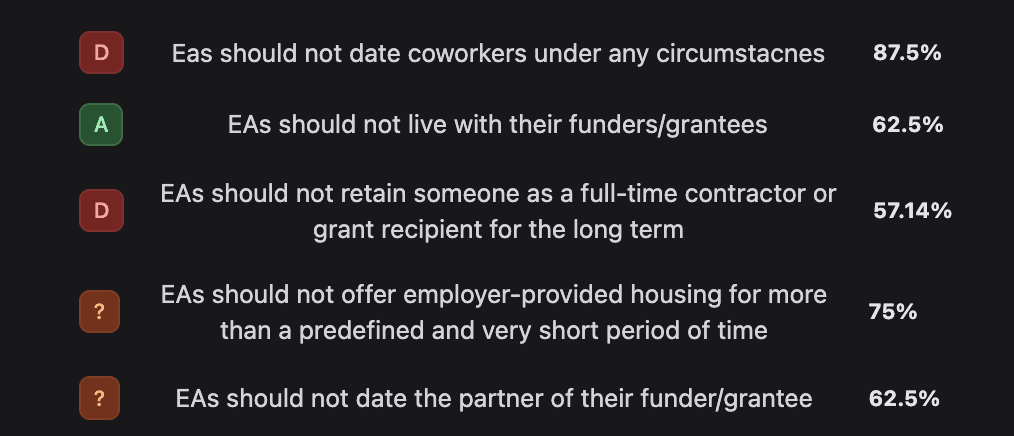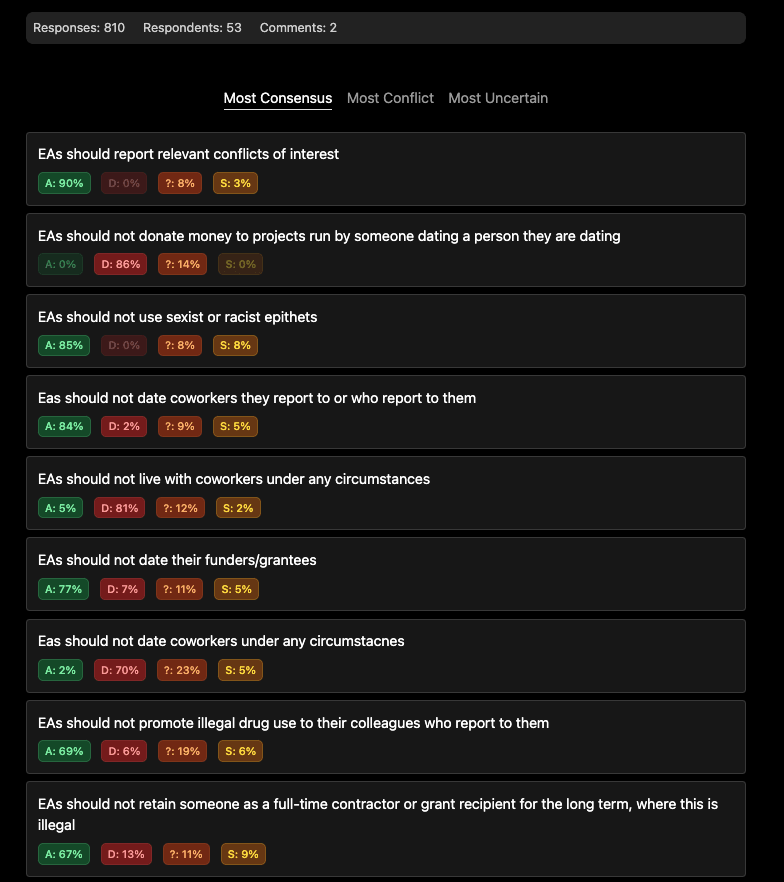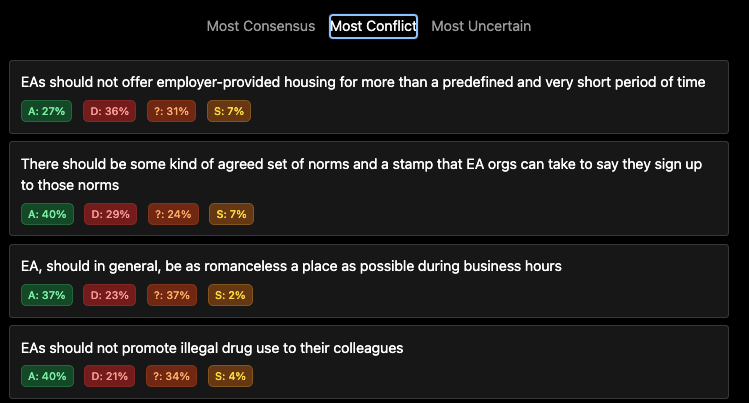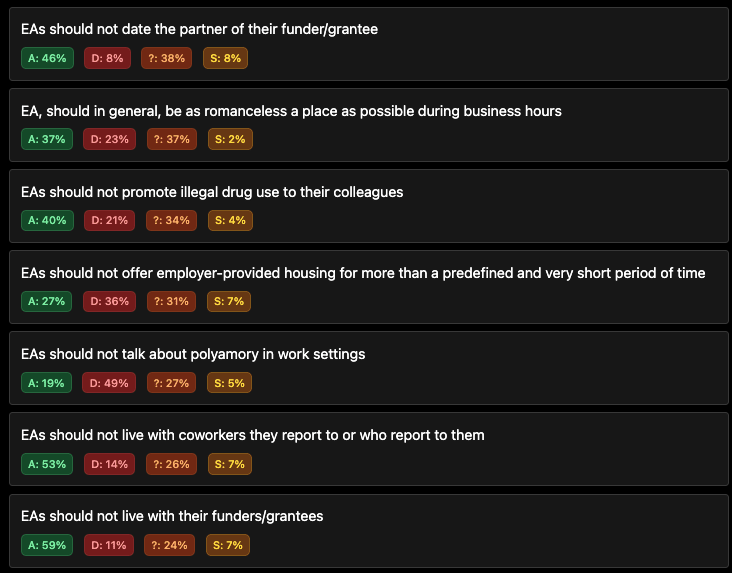There has already been ample discussion of what norms and taboos should exist in the EA community, especially over the past ten months. Below, I'm sharing an incomplete list of actions and dynamics I would strongly encourage EAs and EA organizations to either strictly avoid or treat as warranting a serious—and possibly ongoing—risk analysis.
I believe there is a reasonable risk should EAs:
- Live with coworkers, especially when there is a power differential and especially when there is a direct report relationship
- Date coworkers, especially when there is a power differential and especially when there is a direct report relationship
- Promote[1] drug use among coworkers, including legal drugs, and including alcohol and stimulants
- Live with their funders/grantees, especially when substantial conflict-of-interest mechanisms are not active
- Date their funders/grantees, especially when substantial conflict-of-interest mechanisms are not active
- Date the partner of their funder/grantee, especially when substantial conflict-of-interest mechanisms are not active
- Retain someone as a full-time contractor or grant recipient for the long term, especially when it might not adhere to legal guidelines
- Offer employer-provided housing for more than a predefined and very short period of time, thereby making an employee’s housing dependent on their continued employment and allowing an employer access to an employee’s personal living space
Potentially more controversial, two aspects of the community I believe have substantial downsides that the community has insufficiently discussed or addressed:
- EA™ Group Houses and the branding of private, personal spaces as “EA”
- "Work trials" that require interruption of regular employment to complete, such that those currently employed full-time must leave their existing job to be considered for a prospective job
As said, this list is far from complete and I imagine people may disagree with portions of it. I’m hoping to stake this as a position held by some EAs and I’m hoping this post can serve as a prompt for further discussion and assessment.
- ^
“Promote” is an ambiguous term here. I think this is true to life in that one person’s enthusiastic endorsement of a drug is another person’s peer pressure.





While I broadly agree with Rocky's list I want to push back a little vs. your points:
Re your (2): I've found that small entities are in a constant struggle for survival, and must move fast and focus on the most important problems unique to their ability to make a difference in the world. Small-seeming requirements like "new hires have to find their own housing" can easily make the difference between being able to move quickly vs. slowly on some project that makes or breaks the company. I think for new entities the risks of incurring large costs before you have 'proven yourself' are quite high.
My experience also disagrees with your (1): As my company has grown, we have had many forces naturally pushing in the direction of "more professional": new hires tend to be much more worried about blame about doing things too quick-and-dirty rather than incurring costs on the business in order to do things the buttoned-up way; I've stepped in more often to accept a risk rather than to prevent one although I certainly do both!
(Side note: as a potential counterpoint to the above, I do note that Alameda/FTX was clearly well below professional standards at >200 employees - my assumption is that Sam/execs were constantly stepping in to keep the culture the way they wanted it. If I learned that somehow most of the 200 employees were pushing in the direction of less professionalism on their own, I would update to agree with you on (1).)